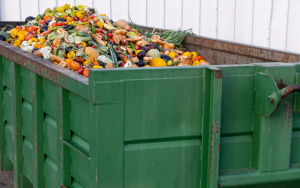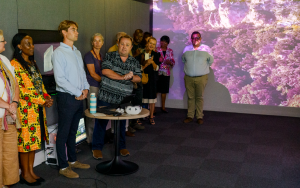
Agricultural plowed field.
Pan-African Parliament adopts continent’s first Model Law on Sustainable Soil Management
- Significant step forward for sustainable agricultural governance in Africa.
- Can help countries safeguard their soils and strengthen resilience to climate change.
- Encompasses all dimensions of soil governance.
Africa has taken a historic step forward for sustainable development, food security and environmental protection when the Pan-African Parliament (PAP) overwhelmingly adopted the continent’s first model law on sustainable soil management during the Sixth Ordinary Session of its Sixth Legislature on 6 November 2025.
Officially titled Model Law on Sustainable Soil Management in Africa, it provides countries with a model legal framework to safeguard their soils and strengthen resilience to climate change. This is a significant milestone considering that Africa holds about 65% of the world's remaining uncultivated arable land.
A team of African experts – among them Prof Oliver Ruppel of the Development and Rule of Law Programme (DROP), which is affiliated to both the Faculty of Law and the School for Climate Studies at Stellenbosch University (SU) – developed the Model Law with support from the PAP Committee on Rural Economy, Agriculture, Environment and Natural Resources and several international partners. These included the UN Food and Agriculture Organisation, the UN Environment Programme, the African Ministerial Conference on the Environment, the African Soil Partnership, the Research Centre for Climate Law at the University of Graz in Austria, the German Environment Agency and the German Ministry for Economic Cooperation and Development.
Grounded in eleven country studies from across the continent that examined existing soil legislation and governance systems, the Model Law guides African Union Member States in developing or strengthening national legislation and policies to ensure the sustainable use, protection and restoration of soils across the continent.
It encompasses all dimensions of soil governance, including sustainable agriculture and food security, climate mitigation and adaptation, soil use regulation and planning, data management, digitalisation, and innovation, as well as public participation, indigenous knowledge and gender equity. Additionally, it addresses rehabilitation, enforcement and dispute settlement mechanisms.
Commenting on the adoption of the Model Law, Ruppel notes that it marks a significant step forward for sustainable agricultural governance on the continent.
He describes it as “a modern, forward-looking framework that helps decolonise Africa’s soils” by empowering countries to govern their natural resources through African-led, science-based approaches.
“This is a law written by Africans, for Africa, rooted in science and guided by justice. It will strengthen resilience against climate change, improve livelihoods, and promote the responsible use of one of our most vital natural assets.
“With this law, Africa takes a decisive step toward ensuring that the continent’s soils, its most fundamental natural resource, remain alive, productive, and protected for generations to come.”
Ruppel notes that it offers a comprehensive framework for African nations to adapt and apply in their local contexts, and also serves as a platform for cooperation, research and innovation across the continent.
As such, the Model Law can also serve as a guide for other regions, offering principles, definitions, institutional designs and implementation pathways that are adaptable to diverse legal systems. Synergies are particularly promising with Europe’s evolving soil framework (including the EU Soil Monitoring and Resilience Directive), where knowledge exchange on monitoring, data governance and science-policy interfaces could accelerate progress on both continents through shared research, interoperable datasets and coordinated capacity-building.
The Model Law is among others inspired by the Soil Initiative for Africa (2020), the Africa Fertiliser and Soil Health Action Plan (2023–2033), and the Nairobi Declaration on Africa Fertiliser and Soil Health (2024) – key policy frameworks for soil health, food systems resilience and environmental sustainability.



